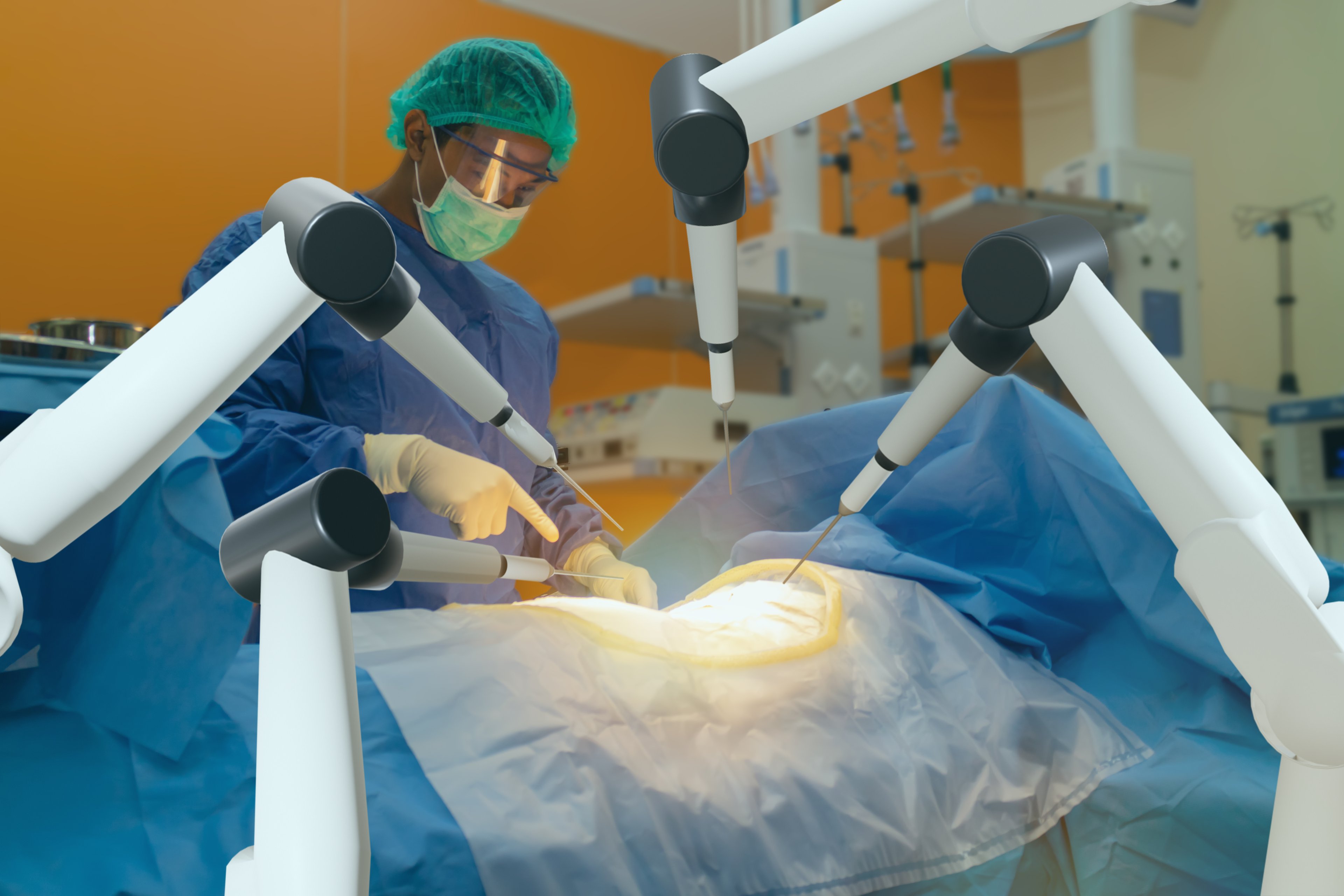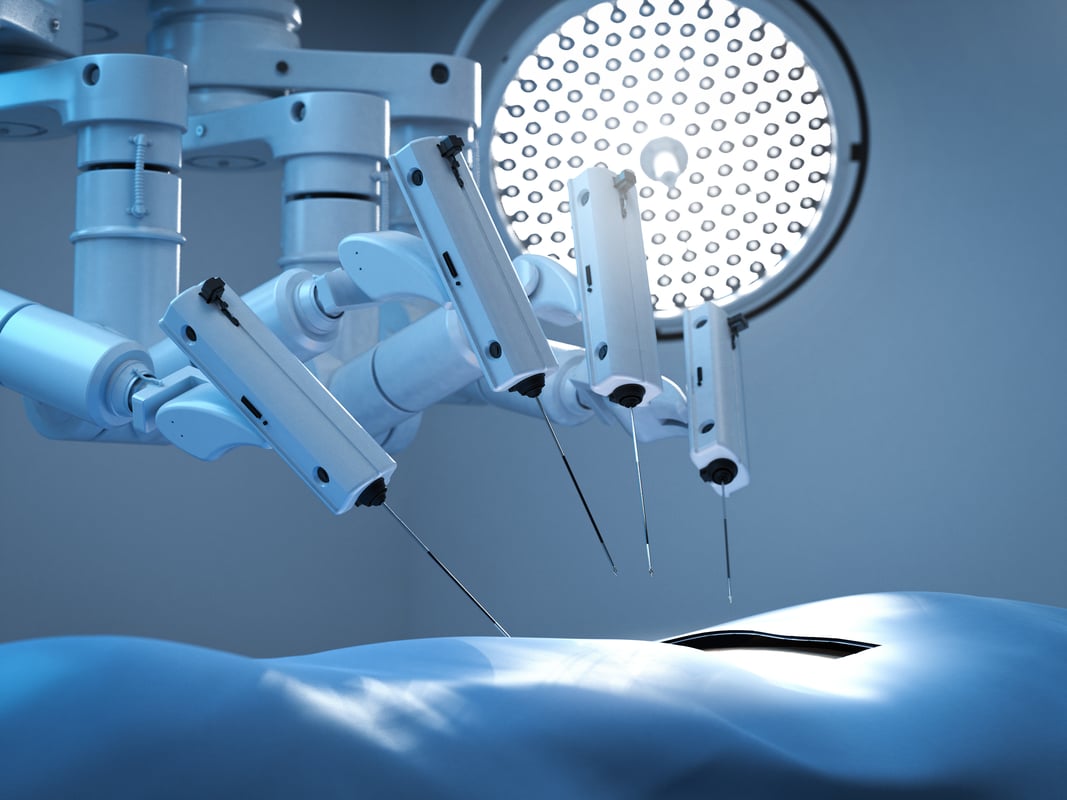Robotics, artificial intelligence, and augmented reality get a lot of press these days, some of it espousing the good while some of it decrying its inevitable toll on human jobs. Technology at its best doesn't replace people, though; it helps them perform better. That's on display every quarter when Intuitive Surgical (ISRG 1.10%) and its da Vinci robots report earnings.
The company shipped 275 new da Vinci systems during the third quarter of 2019, raising the total number in operation worldwide by 12% to 5,406. Robotic-assisted surgeries are still a small fraction of the total number of procedures, and as adoption continues to steadily rise, this robotics company's recurring-sales engine will continue to get even stronger.
Looming competition isn't slowing Intuitive down
Intuitive Surgical is soon to get some competition via the world's largest medical device maker, Medtronic (MDT 1.51%). Intuitive is also early on in promoting two new da Vinci systems: the da Vinci SP (single-port) designed for single incision deep-tissue access, and the da Vinci Ion for lung biopsies. Only four SP systems were placed in operation for a total installed base of 38, and the first three Ion systems were sold.
Competition and the slow rollout of new robots didn't phase results, though, with revenue growth accelerating to 23% year over year in the quarter, bringing year-to-date growth up to 19%.
|
Metric |
Nine Months Ended Sept. 30, 2019 |
Nine Months Ended Sept. 30, 2018 |
Change |
|---|---|---|---|
|
Revenue |
$3.20 billion |
$2.68 billion |
19% |
|
Adjusted operating income |
$1.28 billion |
$1.13 billion |
13% |
|
Adjusted earnings per share |
$9.28 |
$8.03 |
16% |
Data source: Intuitive Surgical.
The bulk of the 275 new system placements were still made up of the flagship X and Xi models for more-general procedures, and innovating new uses for those machines will continue to be the driving force for the company. Case in point: Total procedures performed in Q3 were up 20%, even though the total installed base grew by just 12%. Surgeons using da Vinci are finding new ways to put the system to work, and all of that is fueling the steady and predictable sales model at Intuitive.

Image source: Intuitive Surgical.
Promoting the benefits of robotic help
Purchasing a da Vinci robot can be a big commitment for hospitals. A new system runs as much as a couple of million dollars. To help encourage adoption, Intuitive has been offering lease options, with 33% of new system placements being made under such terms in Q3.
Getting as many da Vinci robots in operation as possible is a good strategy, because system sales don't make up the bulk of revenue. Most of that comes from instruments and accessories, as well as services.
|
Sales Segment |
Revenue, Nine Months Ended Sept. 30, 2019 |
YOY Change |
|---|---|---|
|
System sales |
$930 million |
18% |
|
Instruments and accessories |
$1.74 billion |
22% |
|
Services |
$534 million |
14% |
YOY = year over year. Data source: Intuitive Surgical.
As for services, CEO Gary Guthart had this to say on the Q3 earnings call:
We're working on computing and real-time cloud technologies to allow for tests from telementoring to augmented reality. We now have over 20 active telementoring sites that together have supported hundreds of cloud-enabled, real-time surgery sessions as we progress in building real-time cloud capabilities. Feedback on the utility of these sites for case observations and mentoring has been supportive. In augmented reality, we're working through logistics and installation of our first IRIS accounts [augmented reality that gives surgeons a 3D view of a patients anatomy] to gather customer and clinical feedback. We expect first clinical cases on the IRIS system in the next few months. Lastly, our surgical simulation products have become widely adopted in the installed base with more than 3,200 da Vinci simulators in the field.
And on the instruments and accessories side, Intuitive also got U.S. Food and Drug Administration approval to start selling a couple of new single-use staplers in Q3. The acquisition of endoscope and camera maker Scholly Fiberoptic was also completed in the period for an undisclosed (and likely small) sum of money, further strengthening the company's portfolio of attachments available for use with its machines.
In short, the last quarter was a strong one, and the new systems rollout and a steadily climbing installed base mean Intuitive's real moneymaker, recurring instruments and accessory sales, will keep getting better. For investors looking for a consistent growth play, this medical robotics company is a must-have.







